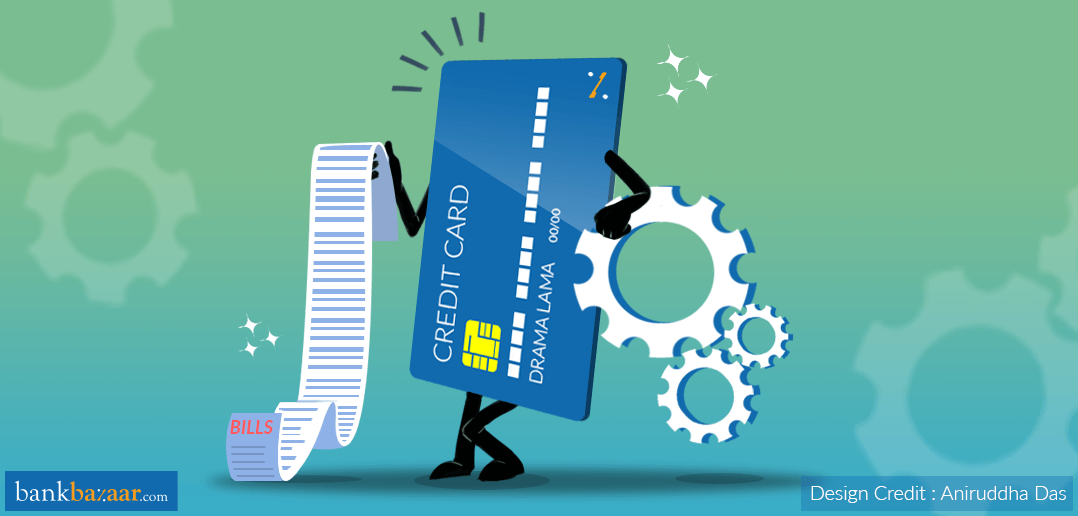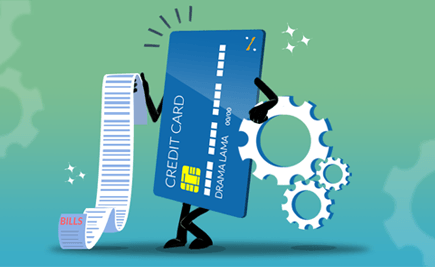Happy with paying your Credit Card bill by the due date? Hold on. There’s a case for paying earlier if you want to reduce your interest costs or fortify your Credit Score. Read on!
Ever wondered about the optimal time to settle your Credit Card bill? Let’s explore the details. Firstly, it’s crucial to pay at least the minimum amount due by the monthly due date. But did you know that paying a bit earlier can make a significant difference? Let’s discuss the Credit Card billing cycle to unravel the secrets.
Credit Cards have a monthly billing cycle (typically 20th of one month to 19th of the next month) and it’s important to understand these three dates:
Statement Date: Once a month, your card issuer compiles all the transactions on your card and generates your statement. This day is your statement date, also known as the closing date. Any activity after this date, including transactions between statement creation and its arrival in your mailbox, will be reflected in your next statement.
When your statement is created, it displays a statement balance. This is calculated by taking the initial balance at the beginning of the billing cycle, adding all new charges during the cycle, and subtracting any payments made within that timeframe.
Due Date: The due date is the deadline for paying at least the minimum amount due. Typically, it’s around three weeks after the statement date. Failing to make at least the minimum payment by the due date will result in a late fee.
Reporting Date: This is when the card issuer reports your balance to the credit bureaus. Unlike the closing and due dates, the reporting date doesn’t show up on your bill. While it could be at any time during the month, it’s safe to assume it aligns with your statement closing date. Stay mindful of this crucial date for maintaining a healthy Credit Score.
Additional Reading: Your Credit Card Billing Cycle In A Nutshell
Your Credit Score favours low credit utilisation (the percentage of your credit limit you’re using). Keeping it under 30% is ideal. However, your reported balance is like a snapshot taken on the reporting date. Paying late may mean a high snapshot, even if you pay in full later. Beat the game by paying early when you’re nearing that 30% mark.
Pro Tip: There’s a common misconception floating around that 30% utilisation is a goal – as if you should strive to keep your Credit Card usage at around 30%. Let’s clear the air on this. The 30% figure isn’t a target; think of it more like a limit or cap. It’s wise to understand that going beyond 30% utilisation can potentially harm your Credit Score. In reality, the lower you keep it, the more favourable the impact on your Credit Score. So, don’t aim for 30%; aim for lower, and you’ll be on the right track. That’s all.
Ideally, pay your full balance each month to avoid interest. But if life happens, paying early can still save you some money. Interest is calculated based on your average daily balance. Paying early reduces that balance, resulting in lower interest payments. Imagine the savings! Let’s take a closer look at this with an example:
Assuming a 30-day billing month with a ₹70,000 card outstanding balance:
- If you pay ₹28,000 on the last day of the billing month, your balance would be ₹70,000 for 29 days and ₹42,000 for one day. Your average daily balance would be about ₹68,987. Assuming your Credit Card has a 4% interest rate per month, your interest charge for the month would be about ₹2,759.48.
- If you pay that same ₹28,000 halfway through the billing month, your balance will be ₹70,000 for 15 days and ₹42,000 for 15 days. In that case, your average daily balance would be ₹56,000, and your interest charge would be ₹800. You cut your interest payment by more than 70% just by moving up your payment date. Magic!
Note: The interest calculation is a simplified example and may vary depending on the specific method used by the Credit Card issuer. Always check with your issuer for the exact calculation method.
Always pay at least the minimum by the due date to avoid late fees and prevent your Credit Score from taking a hit. Missed payments weigh heavily on your Credit Score and will remain on your credit report for up to seven years!
Additional Reading: Know Your Rights! Credit Card Billing Rules from 1st July, 2022
We can’t emphasise the below enough to ensure your credit profile is golden:
- Budget Tracking: Monitor your spending to stay within your means. Use an app, like the BankBazaar Mobile App, to keep track of your spending. Set up transaction limits on your card to avoid overspending.
- Alert Systems: Sign up for text or email alerts to stay informed about transactions on your card, upcoming bill payments, payment confirmations and more.
- Date Adjustments: Discuss with your issuer the possibility of changing your due date to align with your payday. As per RBI regulations effective July 1, 2022, cardholders get a one-time option to modify their card billing cycle for their convenience.
- Statement Scrutiny: Review your statement closely to identify and rectify any unauthorised charges. Report any discrepancies to your issuer immediately.
- Automatic Payments: Set up automatic payments to steer clear of forgetting.
Pro Tip: Did you know you can overpay your Credit Card? No worries, no penalties. Additionally, any credit arising from a failed or reversed transaction, a refund, or similar transactions occurring before the payment due date, and for which the cardholder has not yet made the payment, will be offset against the ‘payment due.’ The cardholder will be duly informed of this adjustment.
There you have it, financial maestros! Stay ahead, pay smartly, and keep that Credit Score shining. Not sure where you stand? Click below to check your score for free in less than a minute.
Copyright reserved © 2024 A & A Dukaan Financial Services Pvt. Ltd. All rights reserved.


